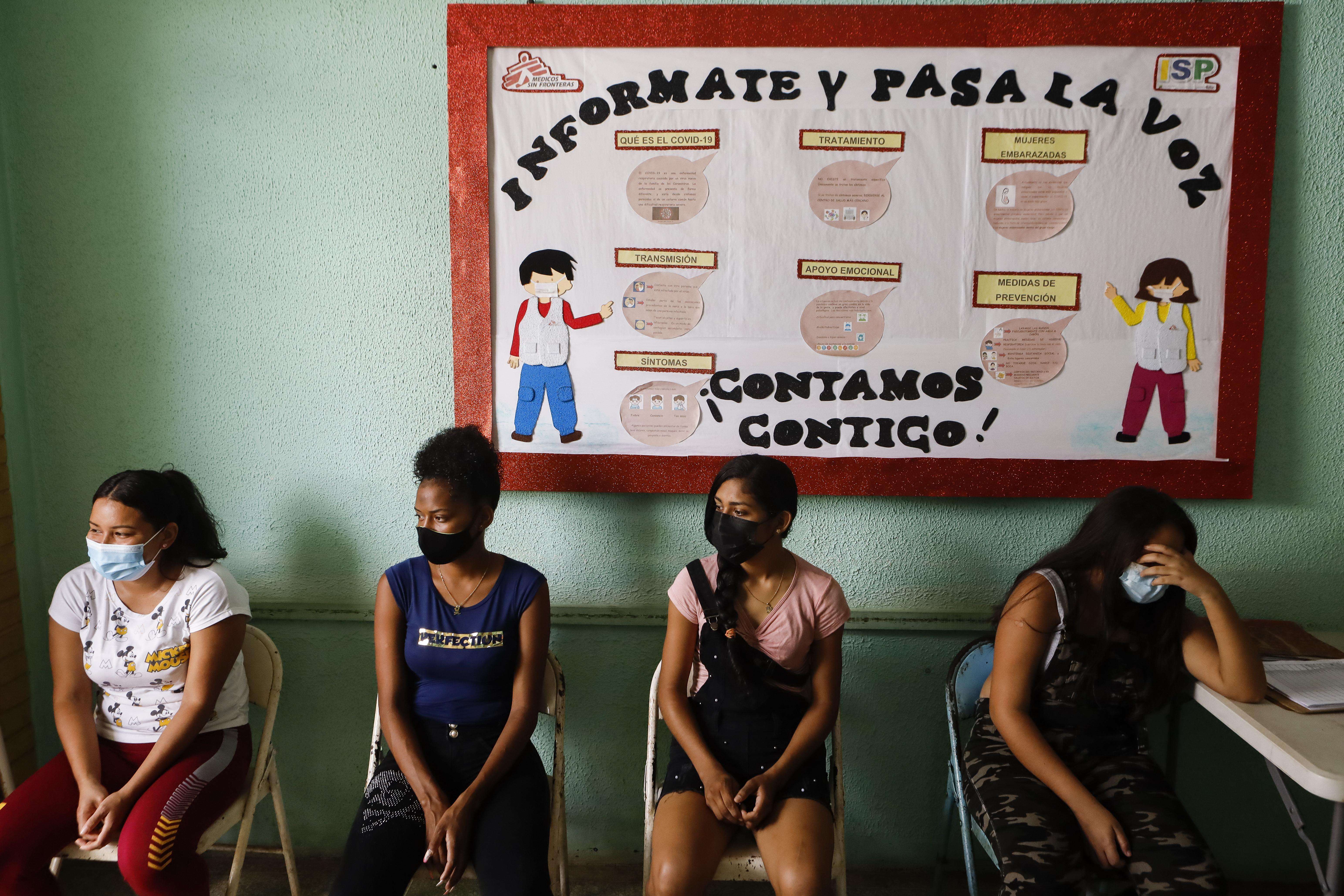June 2, 2022—Women often struggle to access reproductive health care in areas of Venezuela’s Bolívar state such as Tumeremo, where the main economic activity is gold mining. People work in and around the mines for months at a time, or care for children at home while their partners work in the mines. Essential health care such as contraception is often too expensive or unavailable.
Since November 2021, a team from Doctors Without Borders/Médecins Sans Frontières (MSF) has been working with the José Gregorio Hernández Hospital in Tumeremo to provide family planning consultations to more than 1,000 women. Almost 90 percent of these women chose to receive some form of contraception, and more than 70 percent received a long-acting contraceptive method, such as a subdermal implant or an intrauterine device.
“There is a great need,” explains Armando, who accompanied his wife to the José Gregorio Hernández Hospital. “My wife wanted to get an intrauterine device, and when we arrived, we found almost 500 people waiting—all of them had appointments. A month later, my wife had her copper T intrauterine device implanted."
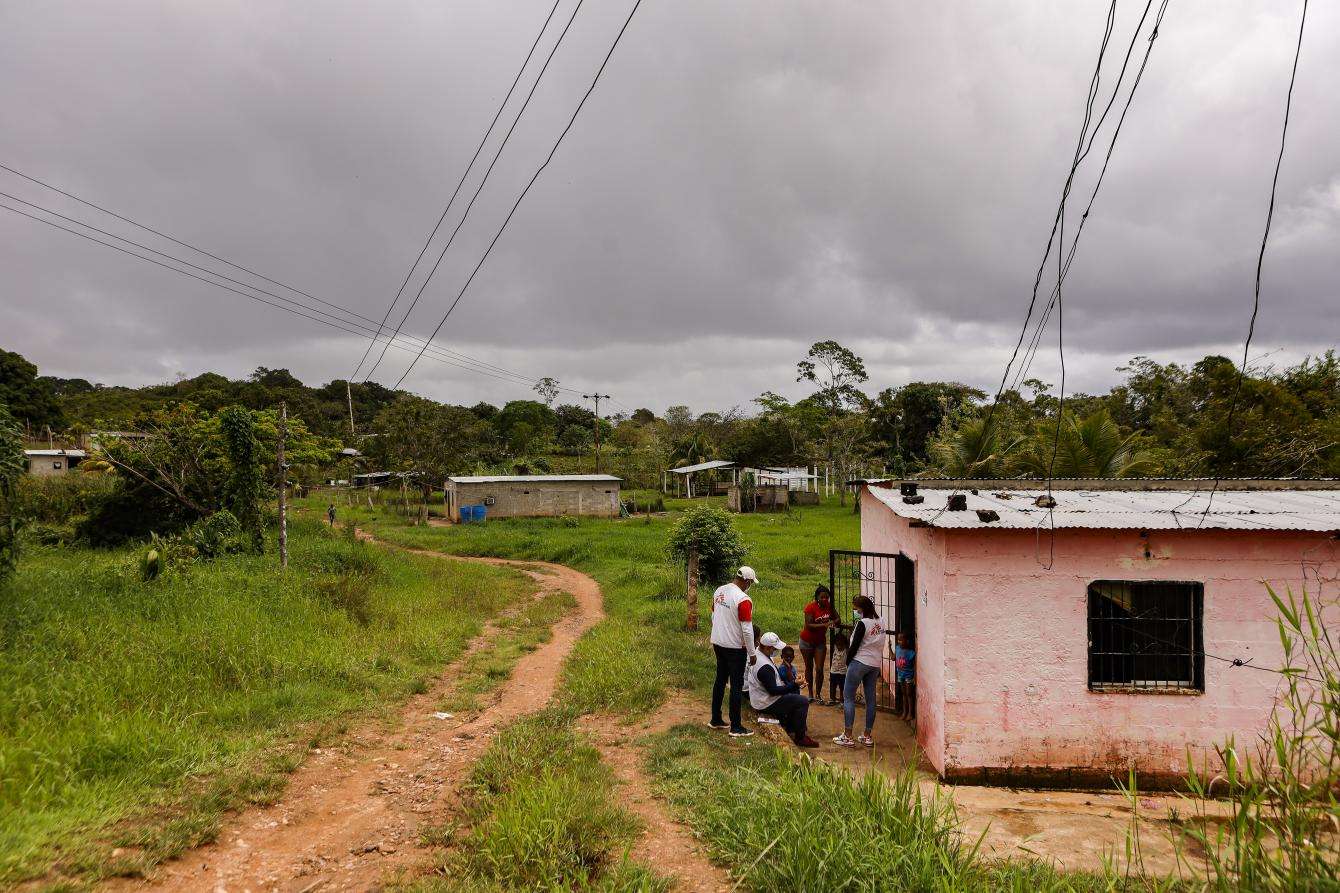
The MSF team sees about 20 patients twice a week for sexual and reproductive health consultations. In addition, an average of 10 women each day are screened for sexually transmitted diseases such as syphilis, HIV, and hepatitis B. MSF’s health promotion team works in the hospital and in the community, raising awareness among people about the prevention and control of pregnancy and sexually transmitted diseases.
Johanna, 21, arrived in Tumeremo two years ago, thinking that she would find opportunities in the mines to send money to her parents, who care for her four-year-old daughter, in Trujillo, western Venezuela. At José Gregorio Hernandez Hospital, health promoters and medical staff from MSF talked to her about sexual and reproductive health services. When her son Jeremy was born several months ago, she received a subdermal implant the same day.
“I already went to the mine and took the baby with me,” Johanna says. “It is very hard there. ... I don't want to be here anymore, I want to go back home. My family tells me to go back to Trujillo. I am very grateful to have the implant; I am calm and now I can take care of my baby and go back home.”
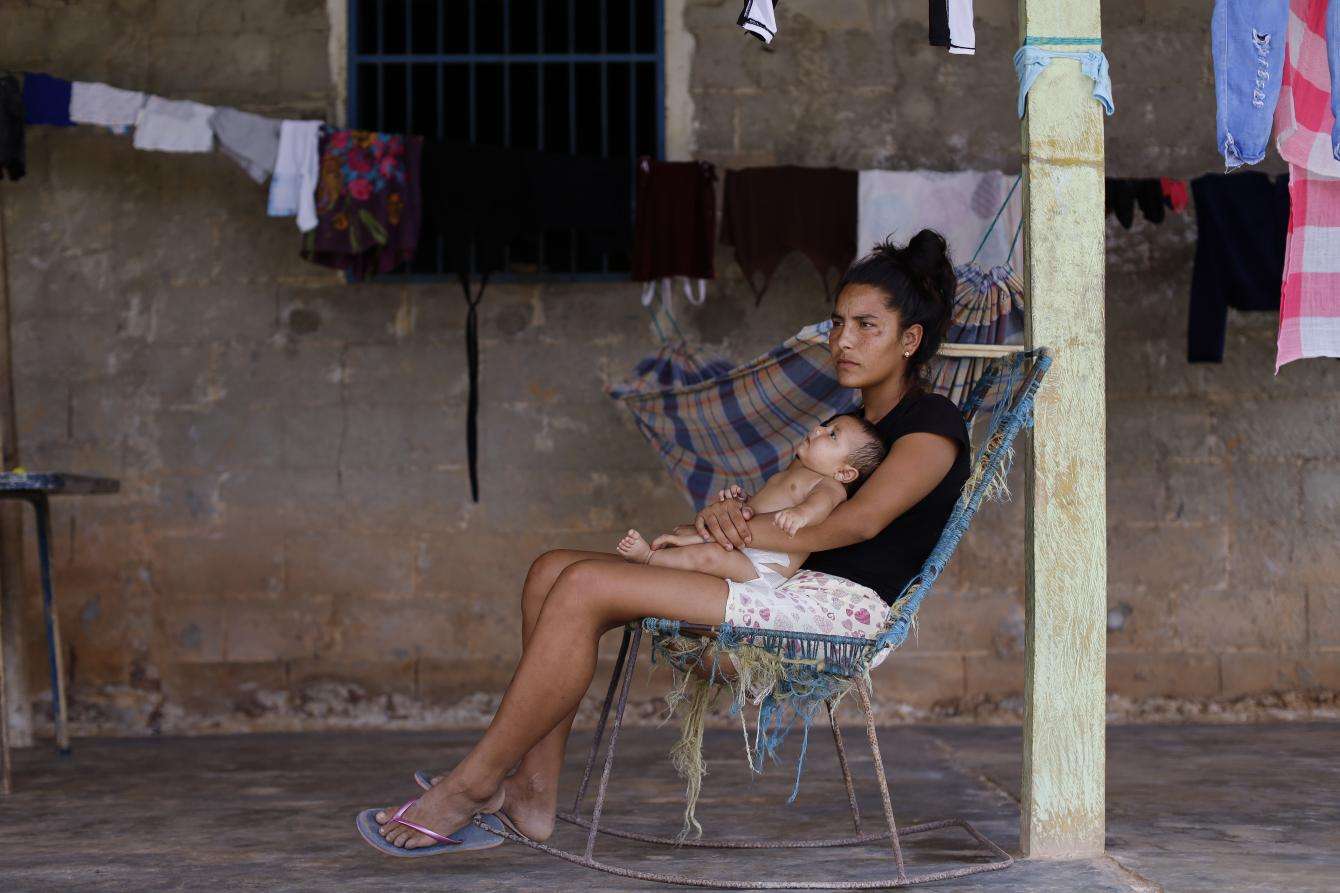
Jessica, a mother of seven children in Tumeremo, describes how she first gave birth at the age of 14, at age 15, and at age 18. “My husband works in the mines, far from here, and spends up to a month there,” she says. “He sends us money, supplies or whatever he can. ... In the meantime, here I give manicures and do cleaning work. I couldn’t continue studying—I have to stay at home to take care of the children.”
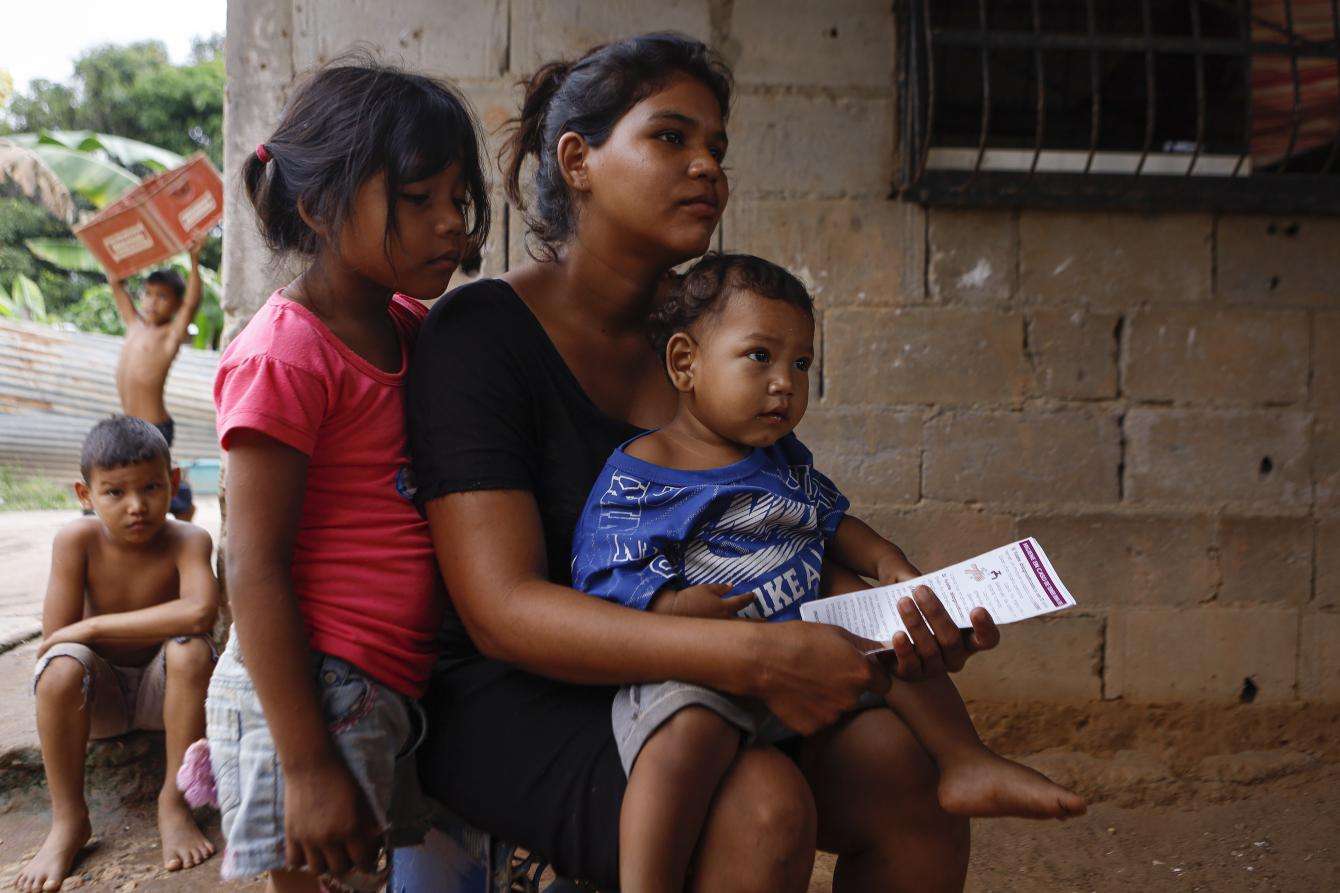
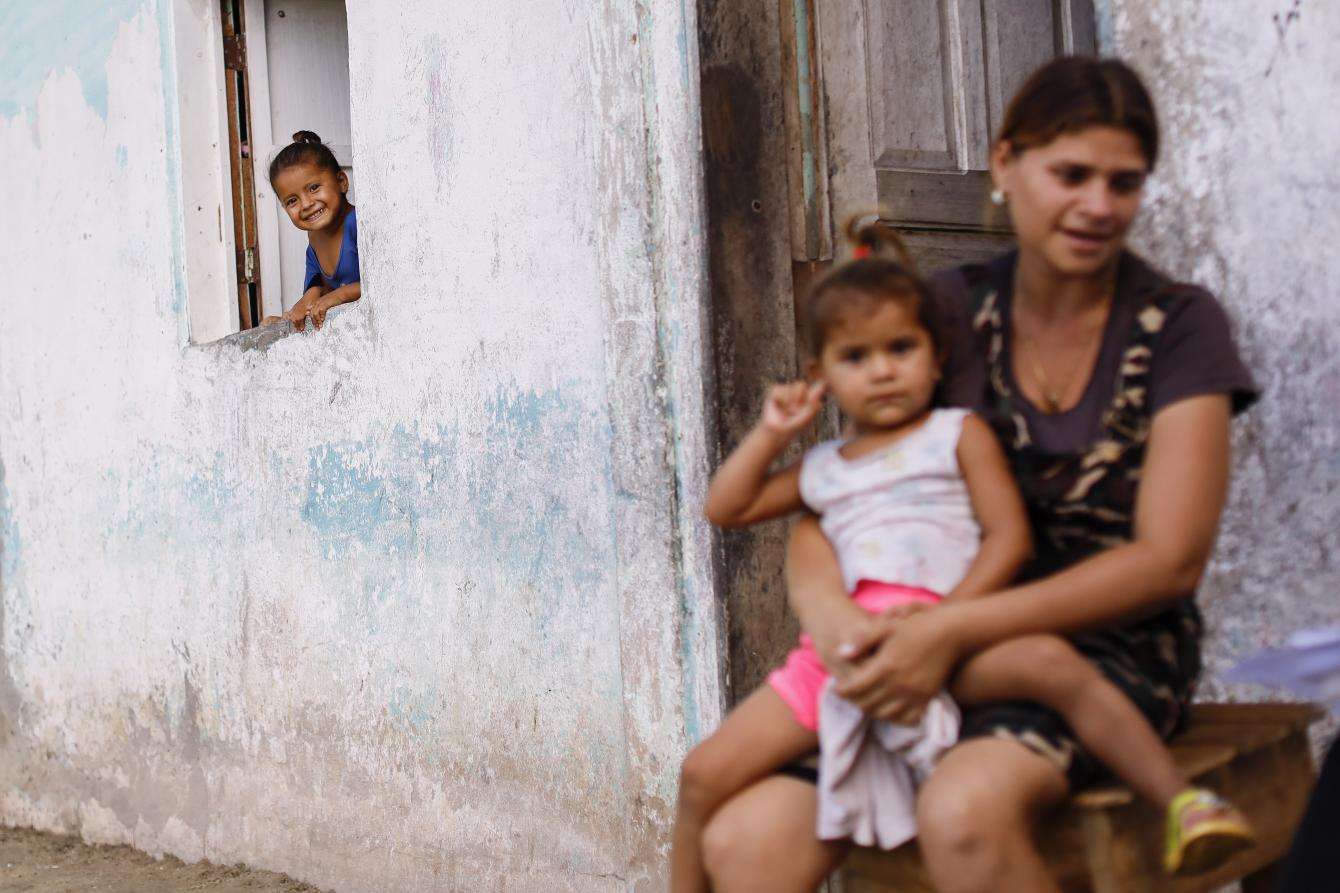
Brigitte, 27, also lives in Tumeremo and has five children. “I’m at home all the time taking care of the children. My husband works in the mines and I spend all day taking care of the children so they don’t go to the street; it is very hard. He spends up to two months in the mine. I have gone and worked doing whatever I can: cleaning, cooking, even washing soil to get gold. The children do not study. I do not have an identity card and I have not been able to enroll them in school. I studied up to the first year of high school, and then I had my first child and I couldn’t continue.”
Access to contraception is now allowing more women to decide whether to have children, and if so when.
“Knowing that we can help so many women motivates me to continue every day and do my best,” says Jusluis Rodríguez, an MSF obstetrician/gynecologist.
MSF has worked in Venezuela since 2015 with medical activities in the states of Amazonas, Anzoátegui, Bolívar and Táchira. In Bolívar, MSF provides support to regional authorities in the Municipality of Sifontes in the areas of Tumeremo and Las Claritas. In collaboration with health authorities, MSF has strengthened emergency services, malaria detection and treatment and COVID-19 screening.
